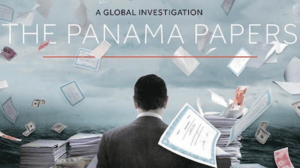Panama Papers show offshore companies involved in mining, oil and gas in 44 African countries
 Latest revelations from the Panama Papers show that some 1400 offshore companies registered by Mossack Fonseca are doing business in 44 of the 54 African countries.
Latest revelations from the Panama Papers show that some 1400 offshore companies registered by Mossack Fonseca are doing business in 44 of the 54 African countries.
According to the report, the Mossack Fonseca’s files reveal offshore companies that were established to own, hold or do business with petroleum, natural gas and mining operations in 44 of Africa’s 54 countries.
The report pointed out that companies that drill or dig for oil, gas, diamonds, gold and other resources have long been dogged by evidence that contracts are often secured through bribery and other corrupt tactics that benefit a few and harm average citizens, in reference to cases involving 12 of 17 companies under investigation by authorities in Italy in relation to a $10 billion oil and gas deal in Algeria. The report says all the ventures were created by Mossack Fonseca.
Citing corruption experts, the report said suspect mining and energy deals are usually organized through secretive companies and hard-to-trace bank accounts.
Fredrik Reinfeldt, former prime minister of Sweden and now head of the Extractive Industries Transparency Initiative, was quoted by the ICIJ as saying, “Companies may be given access to lucrative extractive projects because their owners are politically connected, or because their owners are willing to engage in questionable deals aimed at generating quick profits for a few rather than benefits for wider society.”
He said the use of anonymous companies makes it harder to prevent money laundering and corruption because it allows wrongdoers to “hide behind a chain of companies often registered in multiple jurisdictions.”
ICIJ’s review of Mossack Fonseca’s internal records shows that the Panama-based law firm is a major provider of secrecy to companies involved in extractive industries. The firm’s internal files include more than 1,400 companies whose names refer to mining, minerals, oil, petrol or gas. Other less explicitly named companies – including the 12 companies allegedly used by Bedjaoui in the Algerian energy deal – also played roles in the extractive sector, the files show.
According to the report, companies created and assisted by Mossack Fonseca include at least 27 subsidiaries of one of the world’s biggest gold producers, AngloGold Ashanti and its predecessor.
AngloGold, however, told ICIJ it complies with relevant tax laws and that its offshore companies held investments and allowed it to “mitigate ‘double taxation.’”
Meanwhile, as some of these mining companies make huge profits, most African citizens continue to wallow in poverty. For instance in 2010 alone, the net profits of the top 40 mining companies grew by 156 per cent to $110 billion, and the net asset base of these companies exceeded $1 trillion.
Information available shows that Africa produces more than 60 metal and mineral products and is a major producer of several of the world’s most important minerals and metals including gold, PGE’s, diamonds, uranium, manganese, chromium, nickel, bauxite and cobalt.
Platinum, coal, and phosphates are also mined on the continent.
Some reports say although underexplored, Africa hosts about 30 per cent of the planet’s mineral reserves, including 40 per cent of gold, 60 per cent cobalt and 90 per cent of the world’s PGM reserves. And africaminerals.com reports that some of the largest, and richest mineral deposits in the world have been found in Africa.
By Emmanuel K. Dogbevi
Copyright © 2016 by Creative Imaginations Publicity
All rights reserved. This news item or any portion thereof may not be reproduced or used in any manner whatsoever without the express written permission of the publisher except for the use of brief quotations in reviews.
